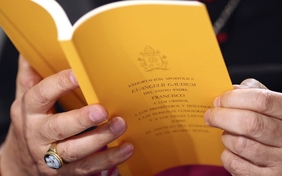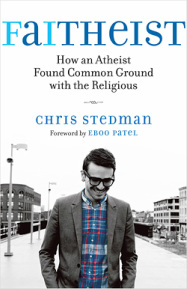
The other dream going on this week has been the white paper on the future of Scotland. It sets out what an independent Scotland might look like if the people of Scotland vote yes in the referendum next year. This vision for Scotland is a political paper and no doubt it will have its critics. No matter what the decision next year or people's opinions about the economic facts of independence this moment in our history has given us an opportunity to think about the kind of Scotland we want to live in. I cannot think of another country in the world that has had this kind of reflection in peace time. Many conversations have taken place on the topic already. I've previously blogged about Postcards from Scotland and Interfaith Scotland has used Visions and Values for Scotland as the focus of its dialogues this year and the theme of Scottish Interfaith Week which is still underway.
I was privileged to speak about this at the national celebration of Interfaith Week in Kirkcaldy on Tuesday evening. For me Scotland can do no better than live up to the four values engraved on the Scottish Mace, values that Donald Dewar, the first First Minister said the new Scotland was built. This was at the time of the establishment of the Parliament in 1999 and perhaps it's time to revisit them. So I would want for the citizens of Scotland
an integrity which would meant honesty and transparency in its public, religious, private and voluntary institutions
a wisdom that would ensure a listening ear and discerning spirit so that greed, self-interest, power will not dictate how we live but that all who live within the borders of Scotland will seek the common good. A common good that allows the human flourishing of all, remembering that human rights must always be accompanied by human responsibilities.
justice that will work to give everyone a living wage, make sure all can live in safety and that the homeless, the marginalised, the poor, the stranger, the abused and uncared for are looked after.
compassion that will help us realise we are brothers and sisters, interrelated members of the same human family, citizens of a world that cries out for healing, wholeness and peace. A compassion that will welcome the stranger, rejoice in diversity, walk the earth with reverence and respect and reach out in support and friendship to other countries and other nations.
Is this too idealistic? Our time has given us people like Nelson Mandela and Aung San Suu Kyi whose ideals have been lived out in their lives and who have become ikons of the best of human nature. Can Scotland live up to these ideals? We can but try but as we do so these four values engraved on the mace that sits before our parliamentarians is a constant reminder of the ideals to which they and we all aspire and to which they and we can be called to account.





 RSS Feed
RSS Feed
